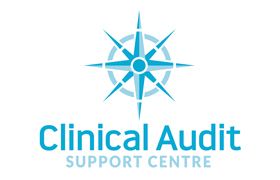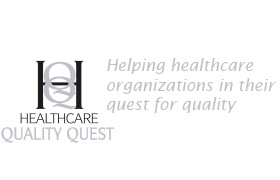Clinical Audit for Improvement 2023 is now in its 23rd year and brings together clinicians, senior/middle managers and leading local and national clinical audit and improvement experts. Through a series of national updates, practical case studies, extended workshops and debates, this one-day virtual conference focuses on local and national clinical audit and celebrate best practice.
Using National Audit to improve Care Locally
 Prof Cameron Swift
Prof Cameron Swift
Emeritus Professor, King’s College London
Consultant Physician & Specialist Committee Member,
Falls Prevention Quality Standard
NICE
• examples from national initiatives in Hip Fracture and Inpatient Falls prevention
• using audit data to monitor care and prompt change
• teamwork, organisation and implementation
• evaluating the impact of service change on patient care and services
- Prof Cameron Swift Biography 0.01 MBDOCXfile
- Prof Cameron Swift Abstract 0.01 MBDOCXfile
- Prof Cameron Swift Slides 1.71 MBPPTXfile
How Clinical Audit Fits in with Inspections
 Angela Ward
Angela Ward
Clinical Audit and NICE Manager
Oxford Health NHS Foundation Trust
• how Clinical Audit is used to support Inspections
• how Clinical Audit fits in with the CQC strategy from 2021
Angela's presentation focuses on how Clinical Audit is used to support inspections and how it fits in with the new CQC strategy from 2021.
Inspections are formal evaluations, that look at your policies to understand your work functions and responsibilities. Inspections look at current and future risks as they have an unbiased view, and they help assist with identifying the cause of a problem and provide recommendations.
What are inspections looking at?
- Is it / did we provide SAFE care?
- Is it / did we provide EFFECTIVE care?
- Is it / did we show CARING to the patient/carer?
- Is it / did we provide RESPONSIVE care?
- Is it / did we provide WELL LED care?
The CQC Startegy changed in 2021 - Angela discusses the changes that affect Clinical Audit. Such as the changes in in-person inspections, focusing on where concerns are raised so trusts rated inadequate will be inspected more often. 27 KLOE will be replaced by Quality statements.
What can we, as audit professionals, do? Angela discusses a few key points that audit professionals can do, such as link in with all teams and colleagues, ensure projects are transparent and accessible, look at your learning culture and how we share positives and negatives i.e. do we have newsletter, peer reviews?
How PSIRF Relates to Clinical Audit and Quality Improvement
 Dr Sam Machen
Dr Sam Machen
Head of Patient Safety Incident Response
Associate Director of Patient Safety
University Hospitals Sussex NHS Foundation Trust
Patient Safety Strategy - Increasing insight as a means for improvement, increasing involvement, improving outputs of investigations;
Dr Sam Machen gives an overview of PSIRF, which was originally supposed to come out in 2020, but due to covid delayed until 2022. SIF came out in 2015 looking at high harm events and those being a trigger for investigation.
How does PSIRF differ from SIF:
- Broader scope- moving away from reactivity and towards proactivity
- Range of tools suggested
- System-wide aprpoach to incidents
- Not guided by harm caused to patient
- Focus on quality of inevstigation rather than quantity as a proxy for occurence
- Supporting staff involved in incidents
- RCA no longer used as preffered methodology
Important to note that PSIRF will not replace other statutory requirements for investigation e.g. learning from deaths/ incidents reported to HSIB




